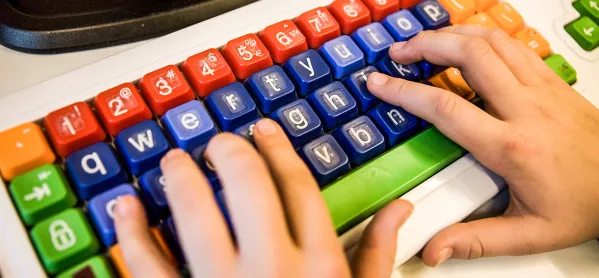The Department for Education (DfE) is urging initial teacher training (ITT) providers to forge partnerships with special schools, in new guidance published today.
School leaders have said the move could boost recruitment to the sector and “better equip teachers to deal with the growing challenges” in mainstream schools after Covid.
The guidance, which is non-statutory, tells providers to “carefully consider” how placements in both mainstream and special schools can “contribute towards the overall programme experience as they develop their curricula”.
The department has also said that a placement in a special school can “reinforce the trainee’s understanding of how to plan and teach more effectively for all children”.
And the guidance - developed alongside ITT advisers - also applies to alternative provision, pupil referral units and mainstream schools with special educational needs and disabilities (SEND) resource units.
The DfE said that while the trainees’ curriculum should be appropriate for the future subject and phase that the trainee plans to teach, this should “not preclude experience in special schools where the curriculum being delivered may be aligned to the capabilities and needs of pupils rather than to their age”.
“For all initial teacher training, accredited ITT providers and their partners - including special schools - should work together to contextualise the trainee’s teaching experience within their ITT programme.”
Margaret Mulholland, SEND and inclusion specialist at the Association of School and College Leaders, said that the union welcomed the guidance and hoped it would encourage providers to use more special schools as hosts for training.
“Training in special schools helps develop teachers who can support children who have identified special needs, but also enables them to deliver inclusive teaching and help any pupils who face barriers to learning.”
Ms Mulholland said she hoped the guidance would “dispel any lingering misconceptions and encourage greater involvement of special schools in ITT”.
“There is a huge recruitment and retention crisis in education, and special schools are impacted particularly severely due to the higher staff-to-pupil ratio that is required.
“If more special schools are used as hosts for teacher training, this should encourage recruitment to this sector as well as better equipping teachers to deal with the growing challenges in mainstream education following the pandemic,” she added.
Emma Hollis, executive director of the National Association of School-Based Teacher Trainers, said her organisation was pleased to see some “much needed clarity on a number of matters that have historically caused providers some uncertainty”.




